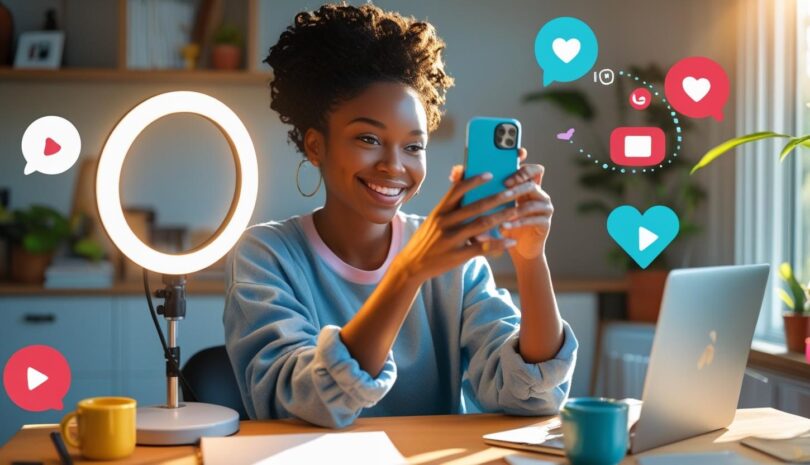Big stars no longer control the spotlight alone. In 2025, micro-influencers are transforming how entertainment gets marketed—from indie films to new streaming series and live events.
These smaller-scale creators may not have millions of followers, but their impact is growing fast. Why? Because they connect with their communities in authentic, highly engaging ways that traditional advertising can’t replicate.
In this article, we’ll explore how micro-influencers are reshaping the entertainment industry, and how brands can work with them to build hype, loyalty, and trust.
What Is a Micro-Influencer?
A micro-influencer typically has between 10,000 to 100,000 followers. They focus on a specific niche—such as film reviews, cosplay, indie music, or streaming commentary—and have highly engaged, loyal audiences.
Unlike celebrity influencers, micro-influencers often respond to comments, participate in community discussions, and create content that feels personal and relatable.
Why Micro-Influencers Are Winning in 2025
1. They Drive Higher Engagement
Micro-influencers often have 4–7 times the engagement rate of mega influencers. Their followers trust them and are more likely to comment, share, and act on their recommendations.
2. They Connect with Niche Communities
Entertainment fans today are fragmented across genres, platforms, and interests. Micro-influencers help reach specific groups, like anime fans, indie film lovers, or local music scenes.
3. They Are More Affordable and Flexible
Many creators in this space work with lower budgets or trade-based deals. That makes them ideal partners for startups, indie creators, and new content launches.
4. They Build Real Trust
Audiences know when someone is just pushing a product versus genuinely sharing what they love. Micro-influencers build credibility by being selective and transparent.
Real-World Examples of Micro-Influencers in Entertainment
1. A TikTok movie reviewer promoting a new indie film
Instead of a standard trailer ad, a micro-influencer shares a heartfelt reaction or “Why You Should Watch This” video that resonates with a niche audience.
2. A niche podcast host promoting a web series
With a loyal listener base in a specific genre (sci-fi, drama, crime), this influencer can promote through commentary, live Q&A, or behind-the-scenes access.
3. A local music vlogger highlighting up-and-coming artists
By collaborating with a content creator who covers underground music, new artists gain exposure to a dedicated and relevant fanbase.
How to Collaborate with Micro-Influencers in Entertainment
● Choose by niche, not just numbers
Look for creators whose audience aligns with your show, movie, app, or event. A small but loyal following is often more valuable than a large, passive one.
● Give early access and exclusive content
Let influencers preview content, share behind-the-scenes footage, or post teaser clips before release. This builds anticipation and gives them something unique to share.
● Focus on creative freedom
The best results come when influencers speak in their own voice. Provide talking points or assets, but don’t script the message.
● Track performance and build long-term relationships
Use UTM links or promo codes to measure impact. If the partnership works, keep collaborating for future launches or episodes.
Smart Tools for Managing Micro-Influencer Campaigns
- Upfluence or Collabstr: to find influencers by category
- Heepsy: for engagement and demographic stats
- Modash: to track content performance
- Instagram Creator Studio or TikTok Analytics: to monitor posts directly
Even small entertainment brands can now access influencer tools without big agency fees.
The Shift: From Mass Promotion to Personal Recommendation
Audiences are tuning out traditional ads. What grabs their attention now is a trusted recommendation from someone they already follow and admire. This shift is turning entertainment marketing into a more community-driven, two-way conversation.
Micro-influencers are the bridge between your content and your future fans.
Influence Is Not About Size—It’s About Connection
Entertainment is personal. Whether someone is choosing what show to binge, what concert to attend, or what movie to stream, they want to hear from people they trust.
Micro-influencers speak to specific interests with honesty and energy. They are the new tastemakers—more approachable, more relatable, and more influential than ever.
If you’re launching something new in entertainment, start small, think niche, and find the voices your audience already listens to.







